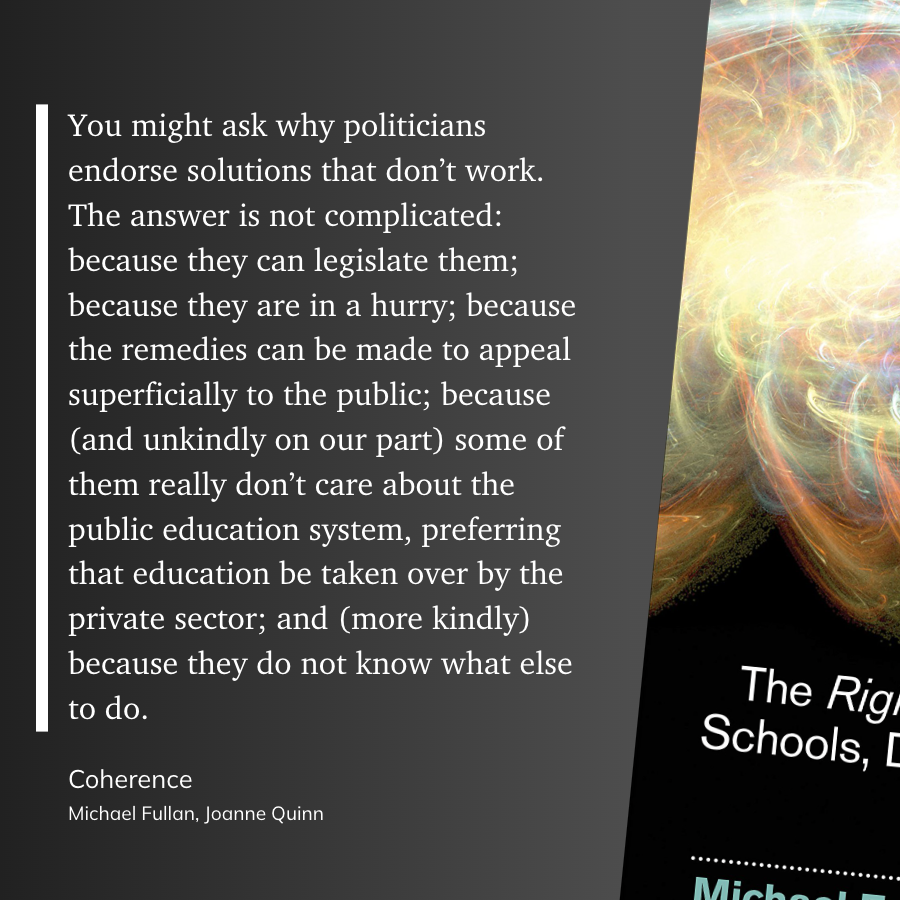This hot take isn’t so hot and perfectly describes why public education will always have to deal with standardized testing mandates and measures from the government.
“You might ask why politicians endorse solutions that don’t work. The answer is not complicated: because they can legislate them; because they are in a hurry; because the remedies can be made to appeal superficially to the public; because (and unkindly on our part) some of them really don’t care about the public education system, preferring that education be taken over by the private sector; and (more kindly) because they do not know what else to do.” (Michael Fullan, Joanne Quinn, Coherence)

- Fullan, Michael (Author)
- English (Publication Language)
- 168 Pages – 08/24/2015 (Publication Date) – Corwin (Publisher)
The Eclectic Educator is a free resource for everyone passionate about education and creativity. If you enjoy the content and want to support the newsletter, consider becoming a paid subscriber. Your support helps keep the insights and inspiration coming!

